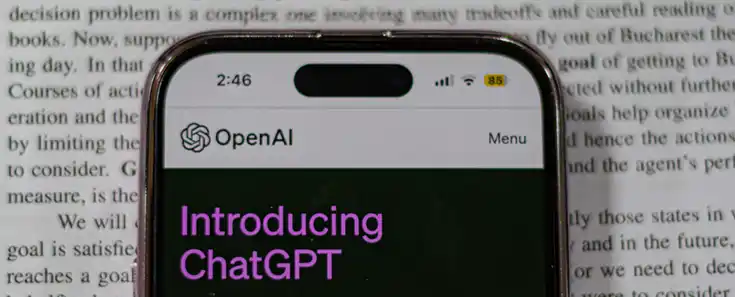New technologies bring new opportunities and new challenges
Both the IT department and other departments at UiO are currently working intensively on creating guidelines and frameworks for how we can use the AI technologies that are now coming, in a good and responsible way and within the legislation.
ChatGPT can not be used to process personal data without an agreement
When we at UiO are to use IT services that process personal data on UiO's behalf, UiO must enter into an agreement with the service provider and make the necessary assessments related to the processing. UiO works with assessments and with putting agreements and technical solutions in place for safe and legal use of ChatGPT and similar services.
Before this is in place, we can not enter text for UiO purposes, including queries/prompts, with personal data in ChatGPT and similar services. This also includes so-called de-identified personal data, such as student responses. Nor can we demand that students use these services in connection with teaching or other activities imposed by UiO.
Notification will be given when services have been assessed, any agreements have been concluded and information about how the services can then be used is ready.
Why is this important?
When you use ChatGPT, or other cloud services that have not been assessed, you have no control over how the service uses and shares the information you enter or provide. This also applies to information you enter directly through questions and comments (prompts/questions). This information may be stored and used to train and improve the service. What you enter can thus end up with other users, and you have no control over how the information is used further.
We are now working on:
- UiO wants to make it possible for students and employees at UiO who need it to be able to use ChatGPT or similar language learning models within the current legislation, and UiO is following developments closely.
- The IT department is now working on solutions to be able to use cloud-based AI products in a sufficiently good way, and the possibility of local installations is being investigated.
- The aim is for a technically and legally approved solution to be ready before the end of the semester. Notification will be given when a solution is in place, and guidelines will be provided for how the solution can be used.
-
So far, several guidelines have been updated with information on the use of AI in the production of text:
-
UiO's guidance for Ouriginal plagiarism control (in Norwegian only) has been updated with information on AI-generated texts and AI detectors
-
UiO's website for source use and references has been updated to emphasize even more clearly that assignments must be your own, independent work.
-
UiO's website on cheating has been updated with information that suspicions of cheating may arise if the answer is generated by ChatGPT or similar.
-

Background info: What is personal data?
Personal data is defined in GDPR article 4.1 as ?‘personal data’ means any information relating to an identified or identifiable natural person (‘data subject’); an identifiable natural person is one who can be identified, directly or indirectly, in particular by reference to an identifier such as a name, an identification number, location data, an online identifier or to one or more factors specific to the physical, physiological, genetic, mental, economic, cultural or social identity of that natural person;?
The definition is very broad and includes all information and assessments that can be directly or indirectly linked to individuals.
Examples of personal data may be:
- name, address, age, telephone number, e-mail address and social security number
- the content of exam answers, bachelor's or master's theses and the candidates' grades
- content in case documents, reports or assessments that deal with employees or students
- the content of e-mail communication between staff and students or between two or more students